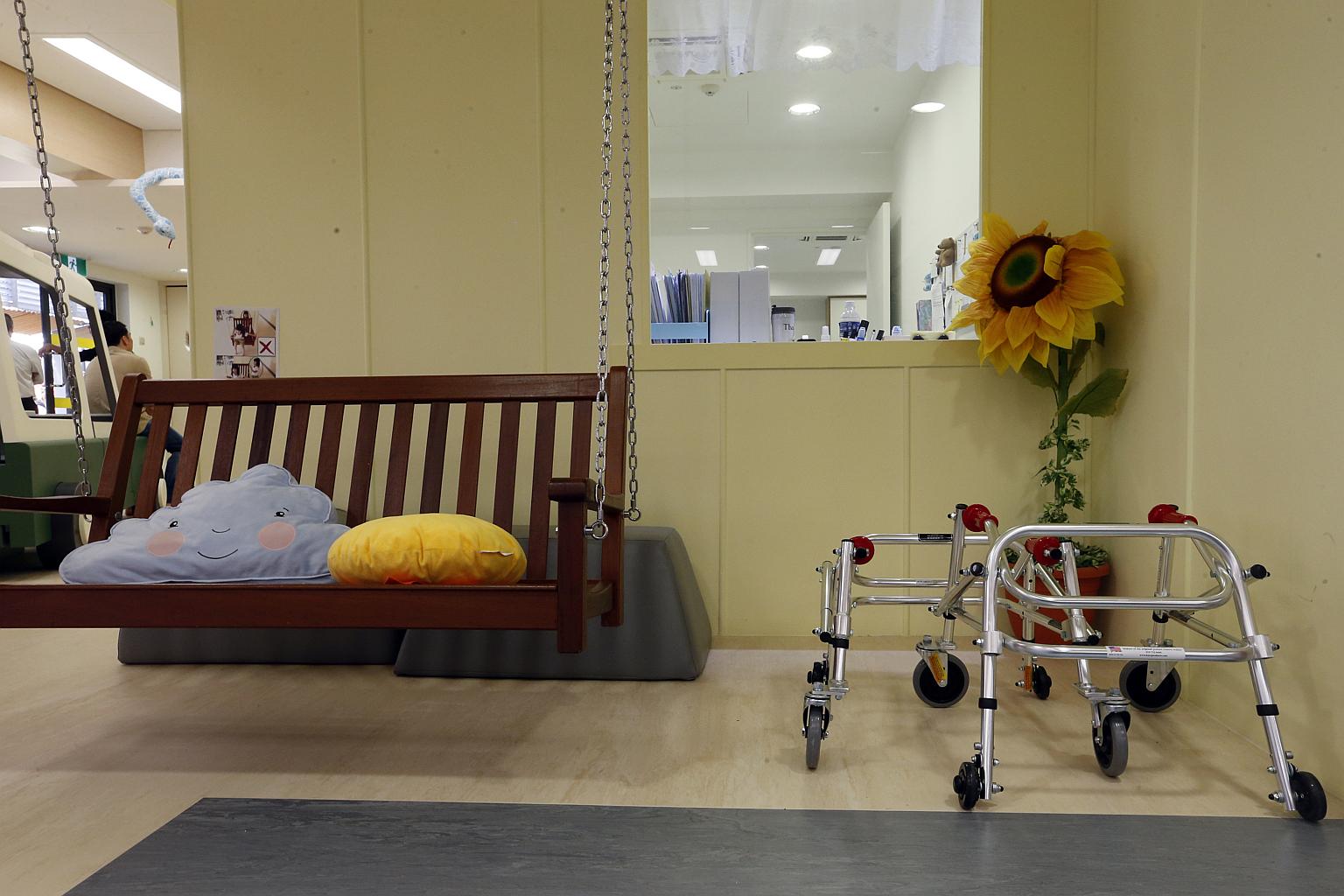Singaporeans 'don't walk the talk' on special needs kids
Poll findings show they are tolerant towards, rather than accepting of, these children
Sign up now: Get ST's newsletters delivered to your inbox

Kindle Garden, said to be the first full-fledged inclusive pre-school in Singapore, allows children with special needs to learn alongside normal children.
PHOTO: ST FILE
Janice Tai
Follow topic:
Singaporeans support the idea of inclusion but do not walk the talk, a survey has found.
While most people believe that children with and without disabilities can study together, only half of parents polled are comfortable with having a special needs child sitting next to their own child in class.
Furthermore, only one in 10 Singaporeans is confident of interacting with special needs children.
These were some of the findings of a survey, released yesterday at a press conference, which asked more than 1,000 people for their experiences of inclusion in daily life and early education. The survey was commissioned by local philanthropic house Lien Foundation.
The findings suggest that Singaporeans are tolerant towards, rather than accepting of, special needs people, said Lien Foundation programme manager Ng Tze Yong.
-
Key findings
• 30 per cent agree that Singapore is an inclusive society.
• 64 per cent believe Singaporeans are willing to share public spaces but not interact with the special needs community.
• 50 per cent of parents are comfortable with having a child with special needs sit next to their own child in class.
• 49 per cent believe new laws are necessary to better promote the rights of children with special needs.
• 10 per cent are confident of interacting with children with special needs.
"Singaporeans embrace the idea of inclusion, but there is a gap between what we think and what we do," he said.
Inclusion means ensuring that everyone, including those with disabilities, is given opportunities to realise his potential in the same environment.
"Building handicapped ramps, parking spaces and toilets is the easy part. We now need to move beyond that to dismantle the obstacles in our minds and the barriers in our hearts," Mr Ng added.
Asked about the current level of acceptance and degree of social interaction between the public and special needs children, more than half of the respondents said Singaporeans are willing to share public spaces with such children, but not to interact with them.
Only 8 per cent of those polled feel that Singaporeans are willing to go the extra mile to make a special needs child feel welcome.
Yet nearly half of them believe that new laws are needed to promote the rights of such children.
For instance, eight in 10 of them believe it should be compulsory for such children to go to school. They are now exempted from the Compulsory Education Act.
One possible reason why special needs children, such as those with learning and behavioural difficulties or physical disabilities, are not accepted fully in society is the lack of interaction between the public and such children.
For over a third of respondents, such children are not part of their social circle. Only a quarter of parents surveyed report that their children are friends with them.
However, the survey also found that Singaporeans' uncertainty about interacting with special needs children falls when the frequency of interactions rises.
Given this correlation, Dr Kenneth Poon, a clinical psychologist and researcher,said there should be more opportunities for interaction so that friendships and shared interests can form. He said: "Pre- schools are a great starting point to seed this process of change."
Mr Tang Hui Nee, assistant director and head of community services at KK Women's and Children's Hospital, said that it would help if there was more public education, and people had more exposure to such children. Three in four respondents said being informed in advance about the special needs of a child will help them be more understanding when disruptive behaviour happens.
To better understand the needs and challenges of the special needs community, a separate survey of 750 parents of children with special needs is being done and the findings will be released next month.

